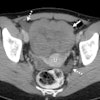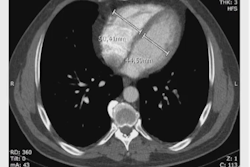Preventive health screenings, including those for screening mammography, have not rebounded to pre-COVID-19 pandemic levels, a new study published February 2 in JAMA Health Forum found.
Researchers led by Rishi Wadhera, MD, from Beth Israel Deaconess Medical Center in Boston found that eligible adults were significantly less likely to receive breast cancer screening and other types of health screening in 2021 compared with 2019.
“These findings support the need for public health efforts to increase the use of preventive health screenings among eligible U.S. adults,” Wadhera and co-authors wrote.
Previous research has explored how the COVID-19 pandemic has affected trends in preventive health screenings in the U.S., including those regarding breast cancer. The first few months of the pandemic in the U.S. saw healthcare services disrupted, with primary care visits declining.
This has raised concerns among healthcare leaders as to the long-term consequences of missed screenings. The researchers pointed out that not much is known about whether healthcare access has returned to prepandemic levels in 2022.
Wadhera and colleagues evaluated changes in measures of healthcare access and preventive health screenings among U.S. adults in 2021 and 2022 compared with prepandemic levels, as well as whether these patterns differed by race and ethnicity. It also studied whether changes in socioeconomic factors played a role in these differences.
The researchers included data from 89,130 U.S. adults who participated in the National Health Interview Survey in 2021 and 2022. Preventive health screening measures included eligible adults who received blood pressure, cholesterol, or blood glucose screening within the past year (2021), as well as colorectal, cervical, breast, and prostate cancer screenings based on U.S. Preventive Services Task Force (USPSTF) guidelines.
The team found that eligible women were significantly less likely to undergo breast cancer screening, with an adjusted rate ratio (ARR) of 0.93. It also observed similar trends in eligible adults for colorectal cancer (ARR, 0.88), cervical cancer (ARR, 0.86), and prostate cancer screening (ARR, 0.86) in 2021 versus 2019.
Also, Asian adults experienced the largest relative decreases across most preventive screenings, while Black and Hispanic adults experienced large declines in colorectal cancer screening (ARR, 0.78) and breast cancer screening (ARR, 0.83), respectively.
While having a usual place for healthcare did not significantly differ among adults in 2021 or 2022 compared with 2019, fewer participants reported having wellness visits in 2022 compared with before the pandemic (ARR, 0.98). Also, adults were less likely to delay medical care (ARR, 0.79) or to not receive care (ARR, 0.76) due to cost in 2022 versus 2019. Additionally, preventive health screenings in 2021 remained below 2019 level, the team found.
Finally, the researchers reported that differences in preventive screening rates across years persisted after additional adjustment for socioeconomic factors. These included income, employment status, and insurance coverage.
The study authors noted that between 8 million and 24 million people are expected to lose Medicaid coverage by May 2024 as states discontinue Medicaid continuous enrollment with the end of the COVID-19 public health emergency. They wrote that since Black and Hispanic adults, as well as some Asian subgroups, are more likely to receive coverage through Medicaid compared with white adults, this loss of coverage could contribute to declines in future wellness visits and preventive screenings.
“Policy strategies to mitigate loss of Medicaid coverage are needed and should be paired with efforts to launch and scale up culturally tailored, national quality improvement programs that use patient reminders, media campaigns, at-home tests, and community health center networks,” the authors wrote.
The full study can be found here.



















